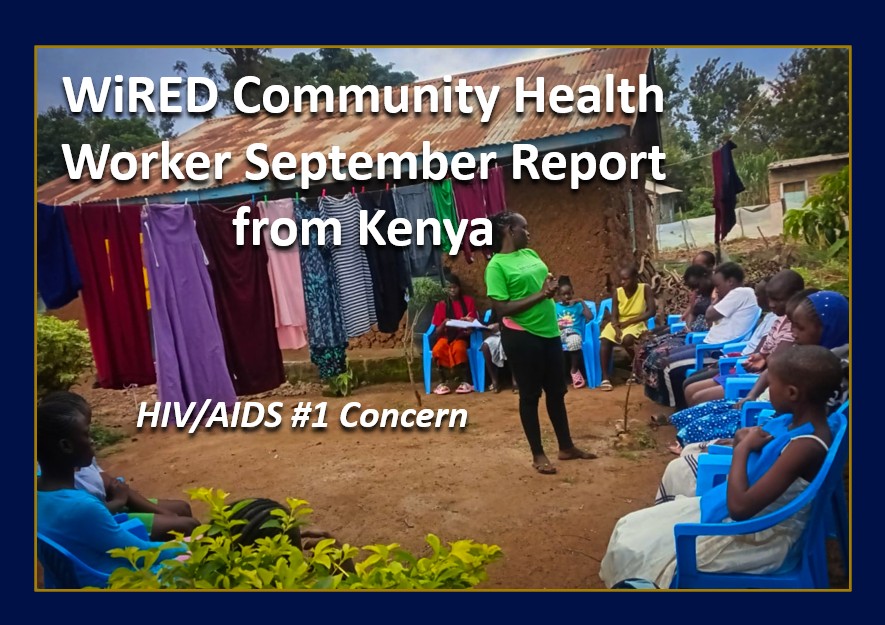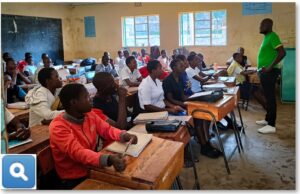By Allison Kozicharow; Edited by Staff
This September WiRED International community health workers (CHWs) operating in Kisumu, Kenya named HIV/AIDS as the top health concern — sadly, that isn’t a surprise.
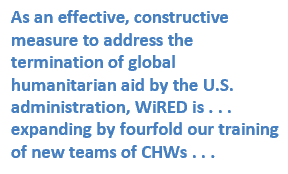 The USAID funding elimination is already causing an up ticking in cases of the infection in Kisumu communities and elsewhere in low-resource countries globally (especially in Africa) as more and more people are unable to get effective medications either for prevention or treatment. Also, WiRED CHWs report that many residents are becoming confused about the changing schedules of the medicines that remain. Luckily, this community has trusted CHWs to turn to for HIV/AIDS advice.
The USAID funding elimination is already causing an up ticking in cases of the infection in Kisumu communities and elsewhere in low-resource countries globally (especially in Africa) as more and more people are unable to get effective medications either for prevention or treatment. Also, WiRED CHWs report that many residents are becoming confused about the changing schedules of the medicines that remain. Luckily, this community has trusted CHWs to turn to for HIV/AIDS advice.
As an effective, constructive measure to address the termination of global humanitarian aid by the U.S. administration, WiRED is not only expanding by fourfold our training of new teams of CHWs but is also preparing a more advanced training curriculum to provide all CHWs with further tools to protect the health of their communities worldwide. WiRED will unveil this program in the near future, so stay tuned!
September 2025 Statistics
WiRED International reports that during the month of September 2025, 19 community health workers (CHWs) in Kisumu, Kenya, reached a total of 8,969 people with health services. Working 24 hours per week, each of the CHWs met with at least 41 patients a week, and the largest number seen in a week by a single CHW was 305, most of them in health training classes.
Top health concerns for August in order of prevalence:
- HIV/AIDS
- Tuberculosis
- Mental Health
- Sexually transmitted infections
- Hygiene
- Malaria
- Cholera
WiRED’s ever-growing library of health education modules readily available on their smart phones enable CHWs — across a wide range of illnesses — to promote healthy practices and disease prevention, to provide palliative care and to refer people to clinics and perform follow-up visits.
September Outcomes
WiRED initiated a new reporting system for our CHWs last March. The new outcomes procedure will record data on CHW home visits, referrals and follow-up to help others understand the direct interventions and level of care CHWs provide. The following include sample outcomes for September, noted by the CHW team.
HIV/AIDS
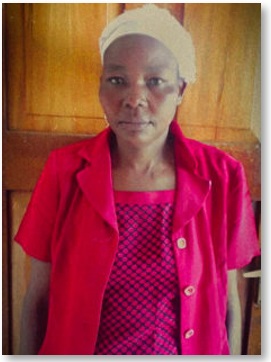 The community members are now ready to know their HIV status and are acting positively when referred for HIV testing and counselling. In the past there was discrimination in the community for those who turned positive, but now they are being embraced and taken care of. The healthcare providers have also changed their negative attitude and are now handling the patients with care.
The community members are now ready to know their HIV status and are acting positively when referred for HIV testing and counselling. In the past there was discrimination in the community for those who turned positive, but now they are being embraced and taken care of. The healthcare providers have also changed their negative attitude and are now handling the patients with care.
—CHW Milka Aoko Nyadiang’a
Pre-Exposure Prophylaxis for HIV/AIDS

There has been a concern in the community about individuals taking oral pre-exposure (PrEP) medication to prevent HIV/AIDS because of change in the administration of the pills. The adolescent girls I engaged with stated that this year an injection form of PrEP was launched and currently another single dose has been launched. They were worried because of the sudden changes. The five girls who take PREP said that the daily pill will not be administered to them, which is a relief because at times they forget. The current pill that will be given once a month at the facility will help them reduce the risks of getting HIV/AIDS. During the session I also engaged with four other adolescents who wanted to be enrolled in PrEP; thus I referred them to Kuoyo dispensary after educating them on how the oral pills work. They were enrolled and are currently taking the oral pills.
—CHW Tracy Agatha
Tuberculosis
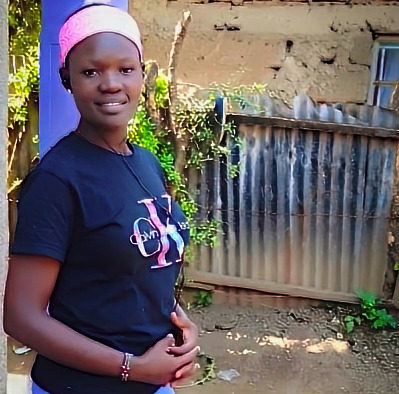 During my fieldwork, I talked to my clients in my group health session and I educated them about tuberculosis. We outlined some of the TB symptoms such as cough of any duration, chest pain, fever of above 38C, unexpected weight loss, coughing up blood-stained sputum, chills, excessive sweat at night, fatigue and loss of appetite. Thereafter, one of the patients came to me and told me that she has these symptoms. I accompanied her to go to the Pandipieri health center for an x-ray. The patient was diagnosed with TB and now she is under treatment and her response is positive.
During my fieldwork, I talked to my clients in my group health session and I educated them about tuberculosis. We outlined some of the TB symptoms such as cough of any duration, chest pain, fever of above 38C, unexpected weight loss, coughing up blood-stained sputum, chills, excessive sweat at night, fatigue and loss of appetite. Thereafter, one of the patients came to me and told me that she has these symptoms. I accompanied her to go to the Pandipieri health center for an x-ray. The patient was diagnosed with TB and now she is under treatment and her response is positive.
My class group all agreed to practice general hygiene and to always go to the hospitals whenever we encounter the symptoms above; and also to avoid over-the-counter drugs.
—CHW Liz Adhiambo
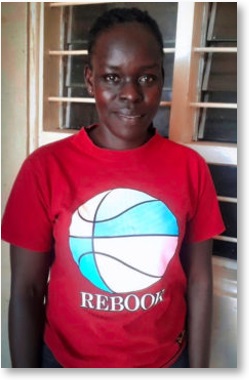 In the month of September as I was conducting a class about tuberculosis, I educated 50 people on tuberculosis. I realized that 10 of them were complaining about the following signs: chest pain, coughing for more than five days, loss of appetite and weight loss. I thoroughly talked to them about modes of transmission of TB, prevention measures and adherence. After I had talked to them about Five people agreed to be referred to the nearest health facility for further check-ups.
In the month of September as I was conducting a class about tuberculosis, I educated 50 people on tuberculosis. I realized that 10 of them were complaining about the following signs: chest pain, coughing for more than five days, loss of appetite and weight loss. I thoroughly talked to them about modes of transmission of TB, prevention measures and adherence. After I had talked to them about Five people agreed to be referred to the nearest health facility for further check-ups.
They were screened for TB and after my follow-ups I found out that two of them were diagnosed with TB and were put on medication. They are doing well and they thanked WiRED for the good work they are doing.
—CHW Millicent Randiki
 As I was going around in the community educating the community members about health issues, I came across a man who said that he had been coughing for one month now. When I talked with him one on one he told me that he has been taking antibiotics but there is no improvement. I referred him to airport health center. When his sputum was taken he was tested and the results were negative. A further test showed the he was positive for pneumonia. He was given treatment and when I did my follow-up he was well and now happy.
As I was going around in the community educating the community members about health issues, I came across a man who said that he had been coughing for one month now. When I talked with him one on one he told me that he has been taking antibiotics but there is no improvement. I referred him to airport health center. When his sputum was taken he was tested and the results were negative. A further test showed the he was positive for pneumonia. He was given treatment and when I did my follow-up he was well and now happy.
—CHW Milka Aoko Nyadiang’a
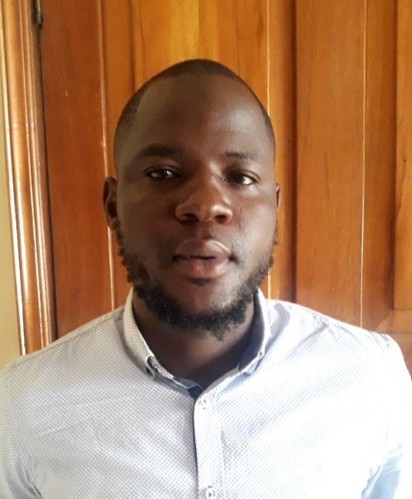 When I was doing my routine health education in the community in the month of September, I met a man who was complaining of severe cough for more than a month and sweating especially at night. I referred him to the hospital. There he was diagnosed with TB bacteria and was treated. He is now adhering well to the medication. The man was grateful and thanked WiRED for the training of CHWs in various communities.
When I was doing my routine health education in the community in the month of September, I met a man who was complaining of severe cough for more than a month and sweating especially at night. I referred him to the hospital. There he was diagnosed with TB bacteria and was treated. He is now adhering well to the medication. The man was grateful and thanked WiRED for the training of CHWs in various communities.
—CHW Vincent Omondi Ochieng
Mental Health
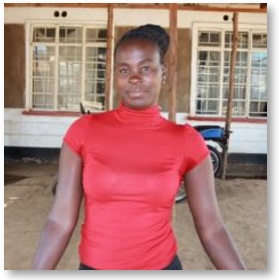 During my field work in one of the areas in my community I came across a teenage boy who was behaving oddly. The boy came to my session and joined the team. As I went ahead with my session the boy interrupted my teaching and at first, I thought he was under drugs. As we all know, mental health is about the brain and also affects the normality of the brain. I concluded that the boy could be suffering from a mental health issue. One lady from the group I was teaching confirmed to me that the boy seems abnormal since he was behaving strangely most of the time. On concluding the session, I asked the lady to take me to the boy’s house since he had already disappeared into thin air. I talked to the mother and from the horse’s mouth she also confirmed the same. I referred her to district hospital for the boy to be checked on a daily basis.
During my field work in one of the areas in my community I came across a teenage boy who was behaving oddly. The boy came to my session and joined the team. As I went ahead with my session the boy interrupted my teaching and at first, I thought he was under drugs. As we all know, mental health is about the brain and also affects the normality of the brain. I concluded that the boy could be suffering from a mental health issue. One lady from the group I was teaching confirmed to me that the boy seems abnormal since he was behaving strangely most of the time. On concluding the session, I asked the lady to take me to the boy’s house since he had already disappeared into thin air. I talked to the mother and from the horse’s mouth she also confirmed the same. I referred her to district hospital for the boy to be checked on a daily basis.
After my visit the mother took her son to the hospital where the son was admitted and checked on a daily basis. I also took my time to check on him at the hospital and found out he’s in good hands. It’s now two weeks since he was admitted and for sure the doctors are doing their best.
—CHW Mary Atieno Ogutu
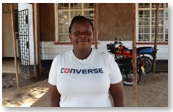 During my usual visit in my community at Nyawita and Migosi, I came across a certain family distressed after their child took her final exams but didn’t get a chance to go to the university because the family couldn’t afford it. The girl didn’t understand her family situation and therefore made life a living hell for them and stopped eating. I discussed mental health, which refers to emotional, psychological and social well-being, and how it affects how we think, feel and act. Our state of mental health also determines how we handle challenges related to others and making choices. I explained to the daughter that stress is a normal part of life during which the body reacts to any change that requires response. Some stress can be positive but extreme ongoing stress can cause problems in young people’s health behavior and growth. I made her understand that she can join the university at any given time once money is available. She was very happy and came to an agreement that she’ll give her parents time for them to look for money, and I also referred the family to Migosi sub- county hospital.
During my usual visit in my community at Nyawita and Migosi, I came across a certain family distressed after their child took her final exams but didn’t get a chance to go to the university because the family couldn’t afford it. The girl didn’t understand her family situation and therefore made life a living hell for them and stopped eating. I discussed mental health, which refers to emotional, psychological and social well-being, and how it affects how we think, feel and act. Our state of mental health also determines how we handle challenges related to others and making choices. I explained to the daughter that stress is a normal part of life during which the body reacts to any change that requires response. Some stress can be positive but extreme ongoing stress can cause problems in young people’s health behavior and growth. I made her understand that she can join the university at any given time once money is available. She was very happy and came to an agreement that she’ll give her parents time for them to look for money, and I also referred the family to Migosi sub- county hospital.
During this month I managed to refer six family members to the hospital for counseling.
—CHW Lency Mmbone
Sexually Transmitted Infections
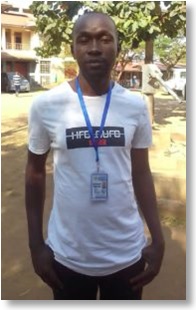 During my field session I had a one-on-one meeting with a certain married woman who opened up about treating STIs for the second time. She claimed she was faithful to her husband but thinks he is not. At that moment she was having some symptoms from previous infections, so I encouraged her to visit the hospital with her husband for medication. When they went to the hospital the results came out to be STIs, and the doctor advised them to be faithful to each other because the woman was at risk for her womb to be affected. They were given medication and are still under medical treatment.
During my field session I had a one-on-one meeting with a certain married woman who opened up about treating STIs for the second time. She claimed she was faithful to her husband but thinks he is not. At that moment she was having some symptoms from previous infections, so I encouraged her to visit the hospital with her husband for medication. When they went to the hospital the results came out to be STIs, and the doctor advised them to be faithful to each other because the woman was at risk for her womb to be affected. They were given medication and are still under medical treatment.
I referred two people suffering from STIs to Obunga dispensary where they were treated and are still under medication. As a result, they are doing well.
—CHW Zackary Omondi
Malaria
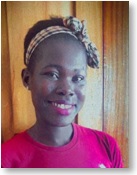 When I was conducting field work in the community I came across a child who had been sick on and off. He was around 12 years old. The mother had been buying him drugs from a local shop. I explained to her about the dangers of over-the-counter drugs and told her to take the boy to a public facility to be tested for malaria and at least she could get directions from the nurse. She agreed to do so and said she will try her best not to buy drugs from pharmacist without a doctor’s advice.
When I was conducting field work in the community I came across a child who had been sick on and off. He was around 12 years old. The mother had been buying him drugs from a local shop. I explained to her about the dangers of over-the-counter drugs and told her to take the boy to a public facility to be tested for malaria and at least she could get directions from the nurse. She agreed to do so and said she will try her best not to buy drugs from pharmacist without a doctor’s advice.
During September I taught the community classes about malaria and its prevention measures. People agreed to consider these precautions. The community is very happy about WiRED for the health education that they are providing to the community.
—CHW Carren Osomo
Cholera
 Cholera is caused by consuming water or food contaminated by bacteria. Once it attacks you, it causes diarrhea and dehydration. Without treatment, the disease can cause death even to people who previously looked healthy.
Cholera is caused by consuming water or food contaminated by bacteria. Once it attacks you, it causes diarrhea and dehydration. Without treatment, the disease can cause death even to people who previously looked healthy.
During this month, I focused more on teaching about cholera, how it affects people, symptoms and treatment. This is important because people learn good practices they should be taking to prepare and eat clean food and drink clean water as well. Hand washing is one of the ways that can prevent people from eating dirty food, and water should be treated through the available methods to prevent cholera.
Also, I encouraged my participants to avoid rushing to over-the-counter drugs whenever they feel a stomach ache rather than visit the hospital for proper assessment. Our discussion revealed that some of the participants usually buy over-the-counter drugs to suppress their stomach aches.
I made seven referrals from participants who shared with me about stomach aches to the Obunga dispensary for further diagnosis. They were treated and allowed to go back home, though they were not found to have cholera.
—CHW Daniel Ayieko
Teenage Pregnancies
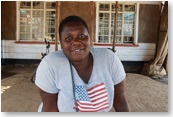 Most of the young women in the slums leave school due to teenage pregnancies. This is because of the rampant drug abuse and addicts in this area that lead to defilement cases. The drug addicts rape the school-going children. The women are afraid of speaking out for fear of being judged in the end by elder people or their friends. I talked to a bunch of teenagers and they said opening up is the most difficult thing because the society will ask why they led whoever did that to them into temptation. I explained to them that there were safe spaces within Kisumu where they could get good shelter without being judged. They agreed to share the information widely to avoid such cases.
Most of the young women in the slums leave school due to teenage pregnancies. This is because of the rampant drug abuse and addicts in this area that lead to defilement cases. The drug addicts rape the school-going children. The women are afraid of speaking out for fear of being judged in the end by elder people or their friends. I talked to a bunch of teenagers and they said opening up is the most difficult thing because the society will ask why they led whoever did that to them into temptation. I explained to them that there were safe spaces within Kisumu where they could get good shelter without being judged. They agreed to share the information widely to avoid such cases.
A pregnant teen living with her grandmother had never received pre-natal care. I referred her to Migosi health center, and she started her care.
—CHW Bunnyce Atieno
Hypertension
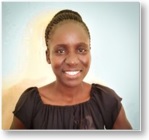 Hypertension is often called the silent killer because it shows no symptoms until it causes serious damage. But with early detection, lifestyle changes and proper care, hypertension can be managed. Over the past few months, I met a woman who started getting frequent headaches and feeling dizzy after standing up. One day she even saw her vision blur while washing clothes. I advised her to go see the doctor. Her blood pressure was taken and results were numbers of 160/100, so she did have hypertension. She was told the do’s and the don’ts of managing her condition. After a few weeks she went back to the hospital for a check-up and results were 130/82, so she was improving.
Hypertension is often called the silent killer because it shows no symptoms until it causes serious damage. But with early detection, lifestyle changes and proper care, hypertension can be managed. Over the past few months, I met a woman who started getting frequent headaches and feeling dizzy after standing up. One day she even saw her vision blur while washing clothes. I advised her to go see the doctor. Her blood pressure was taken and results were numbers of 160/100, so she did have hypertension. She was told the do’s and the don’ts of managing her condition. After a few weeks she went back to the hospital for a check-up and results were 130/82, so she was improving.
—CHW Imeldah Anyango
The following list is all in a day’s work for WiRED’s 19-member paraprofessional CHW team. Their work includes:
- Hosting group sessions about disease awareness, prevention and treatment
- Talking one-on-one with people
- Screening for illnesses
- Treating common complaints
- Providing simple medications to ease pain in the midst of stoppage of health funding programs, especially from the United States
- Performing home visits and offering home care
- Making referrals to clinics as needed
- Following up with patients to check on their recovery and ensure that they are taking any prescribed medications properly
- Accessing WiRED’s library of health modules through our apps (Android app and Apple)
- Taking WiRED-required continuing medical education to remain up to date with their skills.


